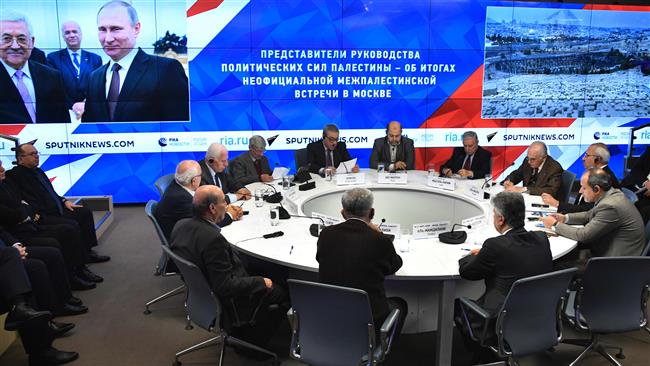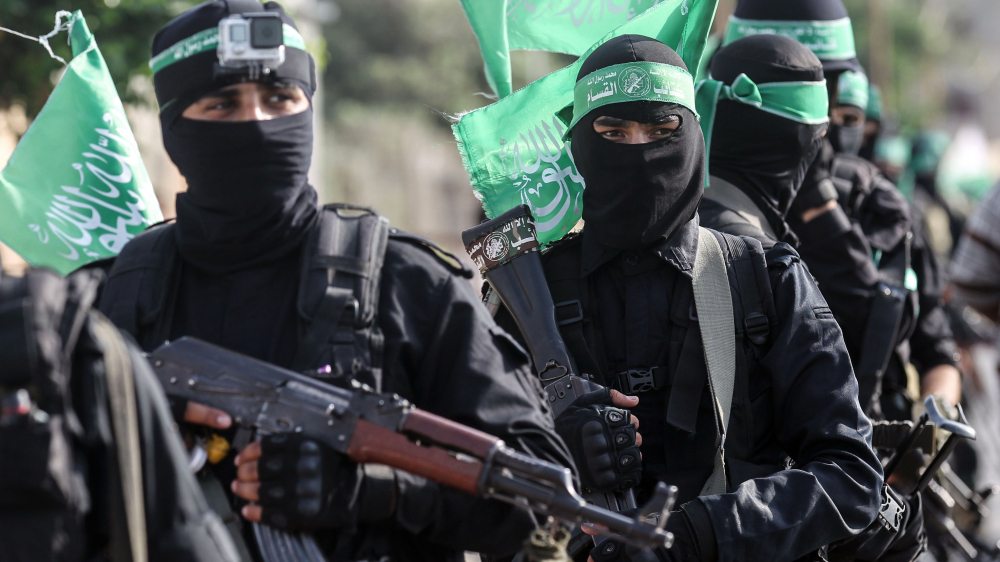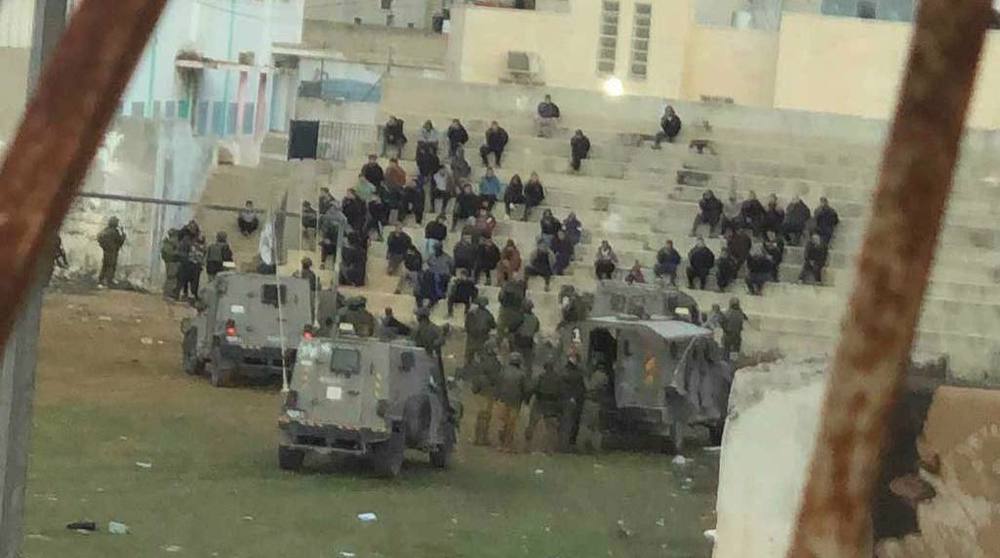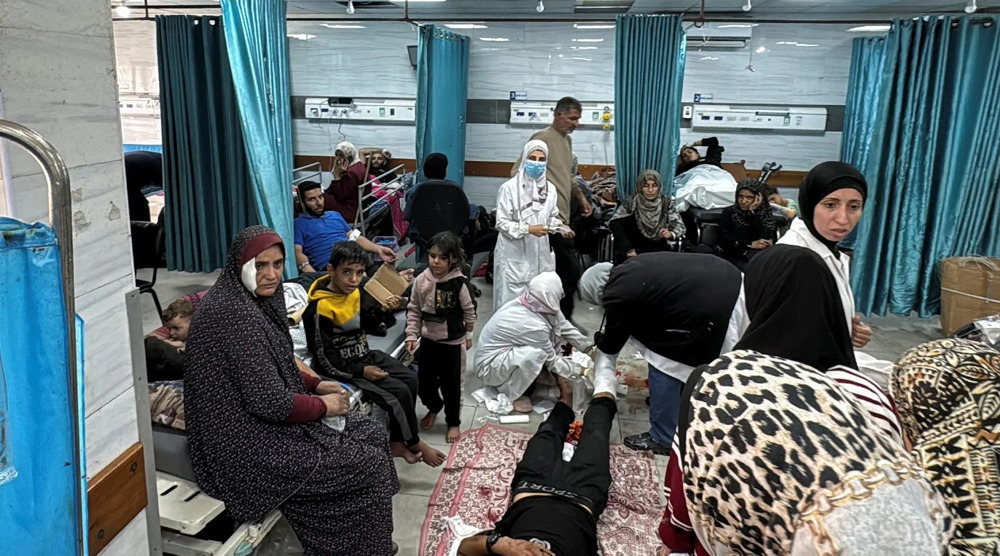Palestinian factions agree to form unity government
Leading Palestinian movements, Hamas and Fatah, have agreed to form a new unity government following extensive negotiations in Moscow, Russia.
The unity deal was announced late Tuesday, three days after the talks began under the Russian auspices among representatives from Ramallah-based Fatah as well as Hamas and Islamic Jihad, both headquartered in the Gaza Strip, and other factions.
Russia has been working towards conflict resolution in the region as part of the Middle East Peace Quartet, also comprising the United States, the European Union and the United Nations.
“We have reached agreement under which, within 48 hours, we will call on Mahmoud Abbas to launch consultations on the creation of a government,” Fatah official Azzam al-Ahmad told a press conference.
Abbas, who leads Fatah, will be carrying out the consultations in his capacity as the president of the Palestinian Authority (PA).
Moussa Abu Marzouk, the deputy chairman of Hamas’ political bureau, also described a unity government as “the most effective tool” to address divisions among Palestinian groups, adding that “it is responsible to promote the solutions, including the holding of free and democratic elections in the West Bank and Gaza Strip.”
The official noted that an agreement between Fatah and Hamas to achieve Palestinian unity is not considered a compromise by any means. The concept of unity, among all factions, is a win for all sides, rather than a loss, he said, adding, "Everybody will win.”
Fatah and Hamas have been at odds ever since the latter scored a landslide victory in Palestinian elections in 2006. Hamas governs the Gaza Strip, while Fatah has set up offices in the West Bank.
The factions agreed in April 2014 to end their grievances and reconcile. The move drew the Israeli officials’ ire, and the Tel Aviv regime consequently responded by suspending the so-called peace talks with the PA.
Following the agreement, the two sides formed a unity government, which Fatah unilaterally dissolved in June 2015, claiming it was “weak,” and that Hamas would not “allow it to work in Gaza.”
In line with the new arrangements, the Palestinian sides involved in the Moscow talks, including Islamic Jihad, will now join institutions under the umbrella of the Palestine Liberation Organization (PLO) and form a new Palestinian National Council.
The new council will select the PLO Executive Committee, the top political and diplomatic Palestinian body.

In another development on Monday, the Palestinian diplomats met with Russian Foreign Minister Sergei Lavrov, asking Moscow to help dissuade US President-elect Donald Trump from fulfilling his campaign pledge to move Washington’s embassy in Israel from Tel Aviv to Jerusalem al-Quds, which the Palestinians want as the capital of their future state.
“We sensed understanding on the part of Mr. Lavrov,” Ahmad said following the meeting.
Prior to the talks in the Russian capital, the Palestinian Authority had also asked Russia to intervene to stop the potential relocation of the US embassy in Israel.
The unity deal comes at a critical juncture amid growing international pressure on Israel over its occupation of Palestinian territories.
Israeli paper Haaretz quoted a Fatah official present at the Moscow talks as saying that “the unity government is of strategic importance for the Palestinians” given the recent peace conference in Paris, the UN Security Council’s Resolution 2334 criticizing the settlements as well as Trump’s election.
VIDEO | Iran-Syria: For Resistance
Qassam Brigades claims killing 3 Israeli troops in northern Gaza
More alive than ever: Sayyed Hassan Nasrallah's legacy grows stronger in martyrdom
Occupation of Syria’s highest peak Mount Hermon part of ‘Greater Israel’ project
Iran: Syrian people will decide their future without foreign interference
IRGC says Iran’s power exceeds borders, warns enemies to adjust themselves
Dozens detained, several wounded in Israeli raids in West Bank
‘Ethnic cleansing’: Hamas blasts Israeli attacks on Gaza hospital amid intl. silence















 This makes it easy to access the Press TV website
This makes it easy to access the Press TV website